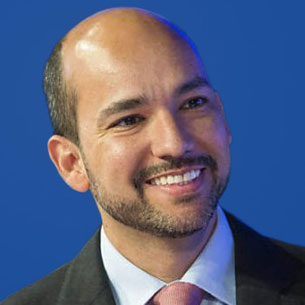“The past is a study for reflection, not repetition”—Mario de Andrade (1893-1945), Brazilian poet and novelist
Latin America and the Caribbean have come a long way since the 1970s, when military dictatorships shackled individual liberties, and the 1980s, when the second oil crisis and rapidly increasing prices led to a debt crisis and eventually default throughout the region. One of the worst recorded recessions and hyperinflation ensued, dropping hundreds of millions of people below the poverty line from Mexico to Argentina, sparing very few countries in between. As a kid, I remember asking my parents to give me my stipend once a week rather than monthly, and to correct it according to one of the prevailing price indexes (at one point there were more than 80 of these in Brazil alone, catering to each specific sector of the economy). As soon as I got the money, I would spend it. You see, when inflation exceeds 80% a month, you can't buy as many comic books in the evening as you did in the morning!
That was then. Today, after often-painful but effective and still incomplete economic reforms, rationalization of government spending, and the increased trade brought about by globalization, Latin America and a large part of the Caribbean have been lifted out of the misery of their recent past and have started to tackle their large but still appalling economic disparities.
What does all of this economic babbling have to do with oncology? The process has coincided with increased urbanization and demographic transition with aging populations as well as with increasingly sedentary lifestyles, increased tobacco and alcohol use, unhealthy eating habits, environmental pollution and carcinogens, making noncommunicable diseases, cancer included, overtake infectious disease as the leading health care issue in the region.
In 2020 more than 1.7 million people will develop cancer and more than 1 million patients will die from it in Latin American and the Caribbean. Countries are struggling to respond to increasing morbidity and death from the disease. Governments and health care systems have many challenges in preventing and treating cancer: there is inadequate funding; the distribution of resources and services is often inequitable and favor the relatively wealthy; there are inadequate numbers of, training for, and distribution of health care personnel and equipment; and there is a lack of adequate care for many populations based on socioeconomic, geographic, ethnic, and other factors. The dangers and cost of inaction are enormous and incalculable. In an effort to address this threat, a group of more than 60 oncologists and public health professionals (including yours truly), led by Dr. Paul Goss, recently published a commissioned paper on planning cancer control in Latin America and the Caribbean in Lancet Oncology.1
In it, we describe that South America, Mexico, and Central America spend between US $7 and $8 per patient with cancer as compared to US $180 to $460 in the United Kingdom, Japan, and the United States. While economic development will certainly increase health care spending, prompt and deliberate actions must be taken to improve this scenario and to make expenditures rational and equitable. Increasing efforts toward the prevention of cancer and avoidance of advanced, stage IV disease will reduce suffering and mortality and will hopefully make overall cancer care more affordable.
The following were identified as the main goals for cancer control and prevention in Latin America and the Caribbean:
- Reduce cancer occurrence
- Implement primary prevention measures
- Develop tobacco control and antismoking policies with emphasis on children andadolescents
- Reduce obesity and encourage physical activity, with emphasis on children andadolescents
- Decrease environmental and occupational carcinogen exposure: discourage use ofwood or combustible fuel sources by promoting education efforts and providingclean stove options; reduce and eliminate exposure to agricultural and industrialcarcinogens (International Agency for Research on Cancer Group 1 and Group 2)
- Develop early vaccination programmes for hepatitis B and HPV
- Increase awareness of cancer and combat stigma among health ministries, doctors,nurses, and the general population
- Avoid late diagnosis of stage IV advanced cancer to reduce morbidity, mortality, and financial cost
- Optimise early detection
- Develop targeted screening programmes—e.g., breast imaging, Pap smear
- Implement clinical early diagnosis programmes
- Optimise treatment of primary cancer
- Reduce delays to treatment
- Improve the quality of surgery and radiation
- Provide access to essential medicines and clinical trials
- Improve treatment of stage IV advanced cancer to reduce morbidity, mortality, andfinancial cost
- Avoid late intervention in stage IV advanced cancer
- Improve availability and quality of anticancer therapies: anticancer drugs, radiation,and surgery
- Incorporate early, comprehensive palliative and supportive care
We hope readers of this blog will take an interest in the issue and access the commission article, and that the findings and recommendations it includes will inspire all stakeholders in the region to redouble their efforts to address this increasing cancer burden and to prevent it from worsening and threatening our societies.
I welcome comments to this post on ASCOconnection.org below, by email at glopes.md@gmail.com, or on the Cancer Control in Low and Middle Income Countries page on Facebook.
Reference
1. Goss PE, Lee BL, Badovinac-Cmjevic T, et al. Planning cancer control in Latin America and the Caribbean. Lancet Oncol. 2013;14:391-436. PMID: 23628188.


Recent posts